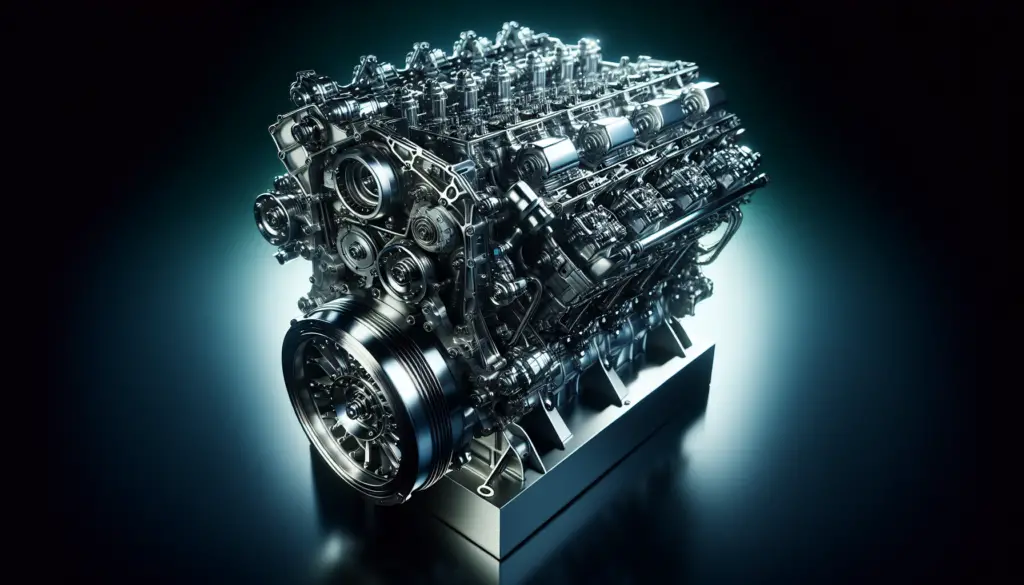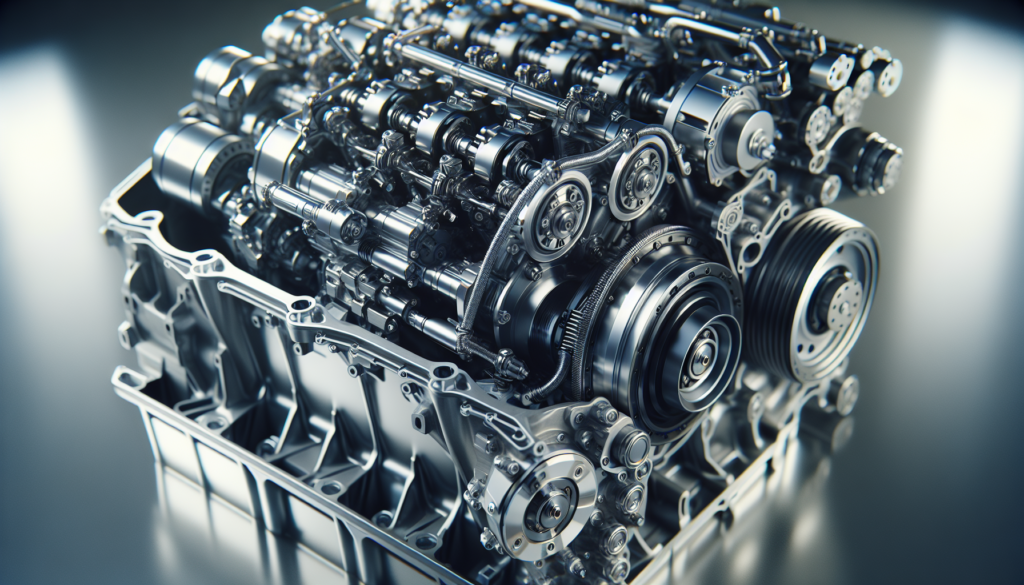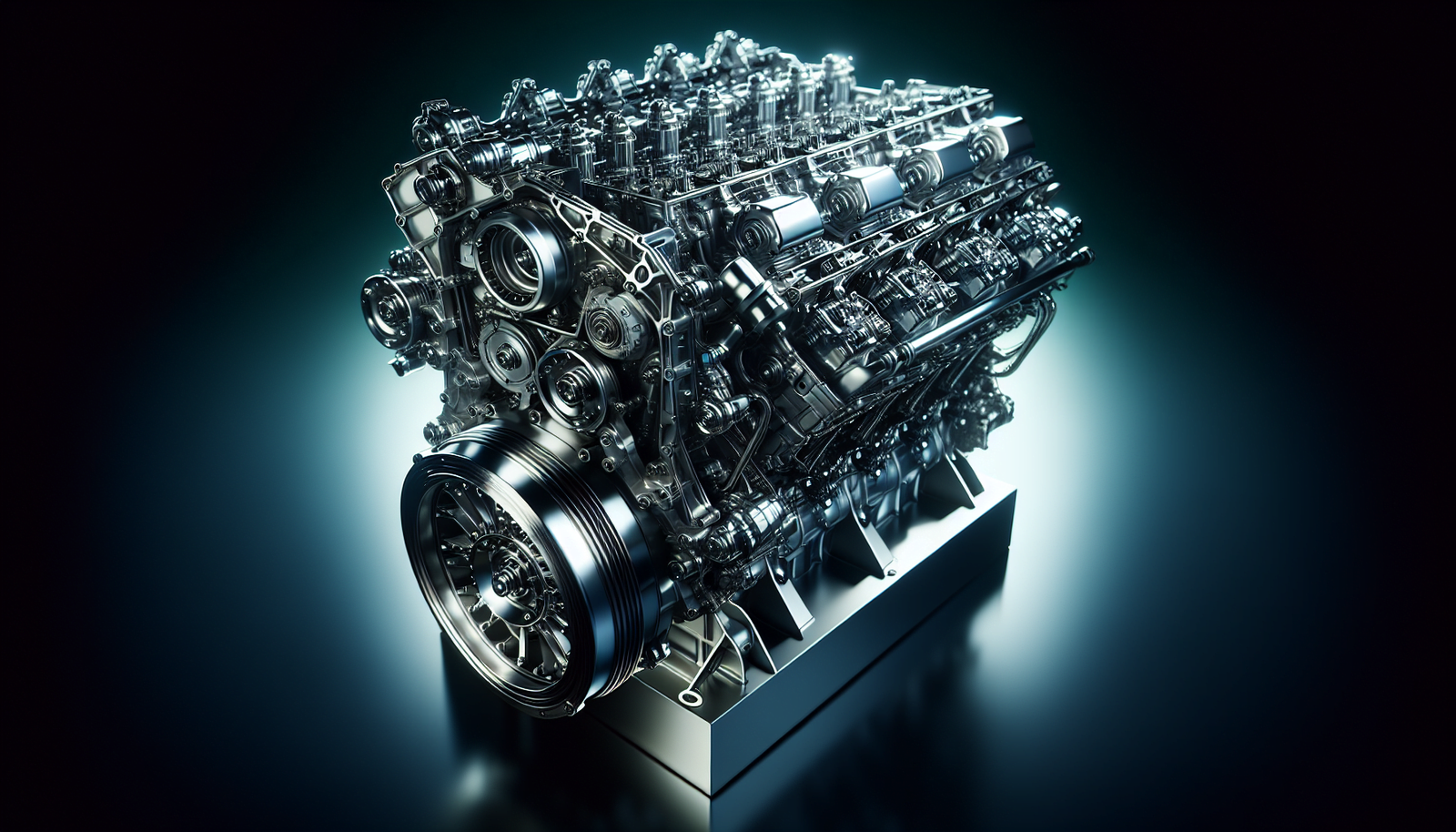If you’re a boat owner who is constantly seeking ways to enhance the performance and efficiency of your vessel, then “The Top Boat Engine Upgrades to Boost Power and Efficiency” is the perfect read for you. In this informative article, you’re going to discover various boat engine upgrades that promise to rev up your engine’s power while improving its running efficiency. From tweaks to key components, to strategic replacements that deliver a boatload of benefits, prepare to power up your sea adventures like never before.

Understanding Your Boat’s Engine
When it comes to boating, understanding your maritime mechanical mate can make a world of difference. Just as you wouldn’t hit the highway without knowing a thing or two about your car’s engine, it’s crucial to have a handle on the heartbeat of your boat—its engine.
The Importance of Boat Engine Maintenance
The maintenance of your boat’s engine is not a part of your boating life that can be ignored. maintaining a boat engine is not merely about ensuring that you’re able to get from point A to point B, but it’s also part and parcel of boat ownership. Regular engine checkups help avoid wear and tear that can lead to breakdowns, ensuring that your boat remains reliable, safe, and ready for adventure.
The Role of the Engine in Overall Boat Performance
The role of the boat’s engine in its overall performance cannot be underestimated. The engine is the heart of your boat and every other component relies on it for operation. A properly tuned and maintained engine can make the difference in both the speed and smoothness of your ride. A lack of maintenance or attention can lead to engine failure that can leave your boat stranded or worse.
How to Identify Signs Your Engine May Need an Upgrade
If your boat is struggling to reach its full potential, sputtering, or creating excess smoke, chances are something’s off in the engine compartment. Hearing unusual sounds, noticing a decrease in fuel efficiency, and experiencing frequent malfunctions are signals your engine may need an upgrade. Regular assessment is key to identifying these issues before they become serious.
Assessing Your Current Engine Performance
Before you decide to upgrade, a thorough assessment of your current engine performance is crucial. This won’t just explain what’s causing issues but will give you an idea of the improvements you can anticipate.
Analyzing Engine Power Output
Engine power output is a good place to start. This is essentially the amount of work that the engine is capable of doing—it’s what gets your boat moving. A drop in power output may be due to any number of reasons, and can indicate wear and tear.
Fuel Consumption and Mileage Ratios
Analyzing your engine’s fuel consumption and mileage ratios can give you significant insight into its health. If the boat is consuming an abnormally large amount of fuel compared to the distance covered, this could indicate a problem with the engine efficiency.
Examining Engine Wear and Tear
Over time, all engines will experience wear and tear—it’s a normal part of engine lifespan. Regular checks can keep you apprised of the rate and level of wear. Early diagnosis often means easier and less expensive repairs.
Deciding on the Right Engine Upgrade
With a thorough assessment of your current engine done, it’s time to consider the right kind of upgrades.
Choosing Upgrades Based on Boat Type and Use
Different boats will benefit from different upgrades. If your boat is primarily used for fishing and leisure, you may not need the same power and performance-related upgrades as a speed boat. Consider your boat’s size, type and common use while selecting upgrades.
When to Consider a Full Engine Replacement
While upgrades can remedy minor engine issues, sometimes a full engine replacement becomes necessary. If your boat engine is exceptionally old or saturated with wear, it might be more cost-effective to invest in a new engine rather than patching up the old one.
Balancing Budget and Efficiency Needs
Remember, upgrades should represent a value proposition for the owner. To strike a balance, assess how each potential upgrade will affect engine performance, fuel efficiency, and longevity—then weigh these benefits against the cost.

Top Engine Upgrade Options
Now let’s look at some of the top performance-enhancing options available for your boat engine.
Performance-Enhancing Engine Parts
From high-performance pistons to camshafts and cylinders, there’s no shortage of parts that can be swapped out for enhanced power and efficiency. Remember, though, quality matters more than quantity. Don’t go for an upgrade just for the sake of it—ensure it’s of high-quality and suitable for your engine’s needs.
The Role of Superchargers and Turbochargers
Superchargers and turbochargers boost engine power by driving more air into the combustion chamber, increasing efficiency. While superchargers provide constant boost irrespective of speed, turbochargers use the engine’s exhaust gases to operate.
Considering Performance Exhaust Systems
A high-performance exhaust system can help your engine breathe easier, which increases power and efficiency. By decreasing back pressure and improving exhaust gas outflow, your engine can operate more efficiently and generate more power.
Improving Fuel System Performance
Next up, the fuel system. Upgrades here can improve fuel efficiency, enhance performance and extend engine life.
Fuel Injection Upgrade Benefits
Upgrading to a modern fuel injection system can offer more precise control over fuel flow, which means better fuel efficiency and an improved ignition process. It can also be less prone to clogging and maintenance issues than old-style carburetor systems.
The Role of High-Flow Fuel Pumps
An inadequate fuel supply can hamstring even the most powerful engines. Upgrading to a high-flow fuel pump can deliver the fuels your upgraded engine needs, ensuring that it performs at its peak.
How a New Fuel Filter Can Improve Engine Efficiency
Over time, fuel filters can become clogged with impurities, reducing fuel flow and engine performance. Replacing an old fuel filter with a new one can help improve engine efficiency and fuel consumption.
Air Intake Upgrades
Air is a crucial ingredient in the combustion process. Enhancing how air gets into your engine can bring substantial performance improvements.
The Role of the Air Intake in Engine Performance
The air intake is responsible for bringing fresh air into the engine for ignition. The more cool and dense the air, the better the combustion, leading to more powerful engine performance.
Considering a Cold Air Intake Upgrade
A cold air intake is an upgrade that can provide your engine with cooler and denser air. Given denser air contains more oxygen, more fuel can be burned, leading to increased engine power and efficiency.
The Benefits of a High-Flow Air Filter
A high-flow air filter can ensure that the maximum amount of clean air reaches the engine, improving combustion and, in turn, engine performance. It can also extend filter life and require less frequent changes.
Upgrading the Ignition System
The ignition system plays a pivotal role in engine performance. Upgrading it can yield better combustion processes, leading to improved power and fuel economy.
Improvement from Electronic Ignition Systems
Replacing an older, points-based ignition system with a modern electronic ignition system can result in improved fuel efficiency, better engine performance, and reduced maintenance.
Role of Spark Plugs in Engine Power
Spark plugs ignite the air/fuel mixture in the combustion chamber. Upgrading to high-performance plugs can ensure more efficient ignition, leading to increased engine power and performance.
The Impact of Upgraded Ignition Coils
Quality ignition coils are crucial for creating the spark that ignites the fuel. Upgraded ignition coils can provide a stronger spark, improving combustion and thereby boosting engine performance.
Propeller Upgrades for Improved Efficiency
The relationship between your engine and your propeller is symbiotic—neither can operate at peak performance without the other.
Selecting the Right Propeller Size and Pitch
The size and pitch of your propeller can significantly impact your boat’s performance. Upgrading to a propeller that better matches your engine’s horsepower, your boat’s style and your typical usage can enhance speed and fuel economy.
The Role of Propeller Materials in Performance
Propellers come in various materials, each with its pros and cons. For instance, aluminum propellers are cheaper but less durable, while stainless steel propellers are expensive but offer better performance and longevity.
Understanding Propeller Efficiency
The more efficiently a propeller can convert engine power into forward motion, the better your boat’s performance will be. Upgrading to a high-efficiency propeller can deliver improved speed and fuel economy.
Investing in an Enhanced Cooling System
Overheating can wreck havoc on your engine, leading to unnecessary wear and tear.
The Role of Cooling in Engine Performance
A well-performing cooling system is vital for keeping your engine’s temperature stable. This enhances the engine’s lifespan and prevents issues like overheating and subsequent engine damage.
Upgrading to a Closed Loop Cooling System
In a closed-loop cooling system, coolant circulates through the engine, keeping it cool. This system is sealed from the outside environment, meaning less chance of seawater causing damage.
The benefits of Fresh Water Cooling Systems
Freshwater or antifreeze-based cooling systems can offer more efficient engine cooling than the traditional raw water systems, potentially enhancing the lifespan of the engine and its components.
Consistent Maintenance After Upgrades
Regardless of which upgrades you’ve chosen, thorough and consistent maintenance is paramount for keeping them—and your engine—functioning optimally.
The Importance of Regular Engine Checks Post-Upgrade
Regular checks can help ensure that the upgraded components are functioning as planned, preventing unnecessary wear and tear or damage to other parts of the engine.
How to Maintain the Longevity of Upgraded Parts
Proper maintenance is essential for prolonging the lifespan of upgraded parts. This might include regular cleaning, keeping the engine well-lubricated, timely replacements of filters, and so on.
Detecting Potential Issues with Upgraded Components
Upgrades can sometimes come with unanticipated issues. Regularly assessing your engine’s performance can help you detect and address any potential problems early on, minimizing damage and avoiding expensive repairs.
The connection you have with your boat can be one of life’s greatest joys. By understanding the intricacies of your boat’s engine, and by knowing how and when to upgrade it, you secure many more years of smooth sailing. Harness the power of your engine today, and your future self will thank you for it tomorrow.

